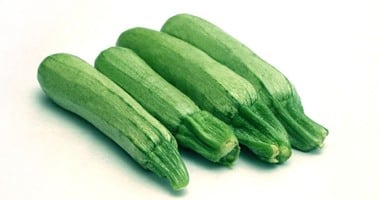Usually, we do not think that eating vegetables could pose a health risk. They are always associated with good nutrition and disease prevention. However, some types of vegetables may contain natural compounds that can cause poisoning under certain conditions, especially when grown in unfavorable environments or exposed to environmental stress. The problem is that some of these compounds cannot be detected by appearance alone but may be revealed by taste or manifest effects during digestion.
Zucchini usually seems like a healthy and completely safe food choice, but in rare cases, it can become a source of poisoning. A real case documented by medical sources highlighted this unexpected risk after the sudden deterioration of a Czech woman’s health following a homemade meal containing zucchini. She showed severe symptoms of colic, vomiting, and diarrhea, later found to be poisoning from a natural substance secreted by some types of zucchini. This was confirmed by a report published on the health website.
Although zucchini poisoning is rare, knowing this risk can help prevent it. There is no need to avoid zucchini completely, but it requires a simple taste test before cooking. If you notice an unusual taste, do not hesitate to discard it, as simple caution may prevent a serious health problem.
This rare case is due to compounds known as “cucurbitacins,” natural chemical substances produced by some plants in the gourd family, such as zucchini and pumpkin. These bitter-tasting compounds are secreted in larger amounts when plants face difficult growing conditions like drought or sudden climate changes. The presence of these substances in high concentrations makes the plant toxic when consumed, even in small amounts.
Symptoms usually begin shortly after consuming zucchini contaminated with cucurbitacins and vary between digestive disorders, cramps, nausea, diarrhea, and sometimes more severe symptoms such as low blood pressure or liver effects. The severity of symptoms depends on the amount of toxin consumed and the body’s sensitivity.
One challenge in this case is that diagnosis can be difficult due to symptom similarity with infections or other digestive conditions. There are no clear laboratory tests to detect these toxins, and no direct treatment exists. In most cases, doctors rely on symptom management, such as fluid replacement and monitoring the patient’s condition until recovery.
Since there are no obvious changes in the appearance or smell of contaminated zucchini, taste is the only indicator. Any zucchini with a bitter or unusual taste should be discarded immediately and not eaten, even if it looks fresh and intact from the outside.













Recommended for you
Exhibition City Completes About 80% of Preparations for the Damascus International Fair Launch
Talib Al-Rifai Chronicles Kuwaiti Art Heritage in "Doukhi.. Tasaseem Al-Saba"
Unified Admission Applications Start Tuesday with 640 Students to be Accepted in Medicine
Egypt Post: We Have Over 10 Million Customers in Savings Accounts and Offer Daily, Monthly, and Annual Returns
Al-Jaghbeer: The Industrial Sector Leads Economic Growth
His Highness Sheikh Isa bin Salman bin Hamad Al Khalifa Receives the United States Ambassador to the Kingdom of Bahrain